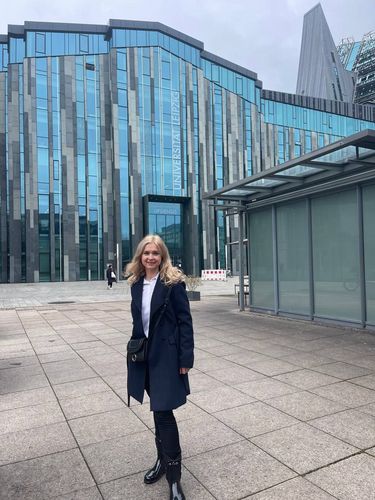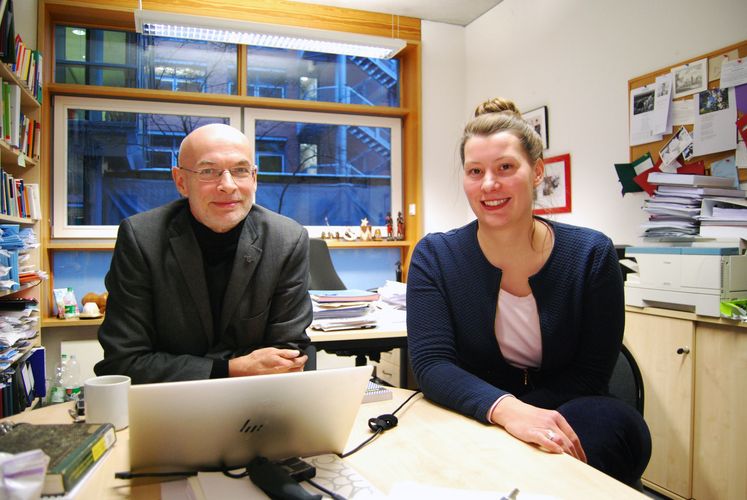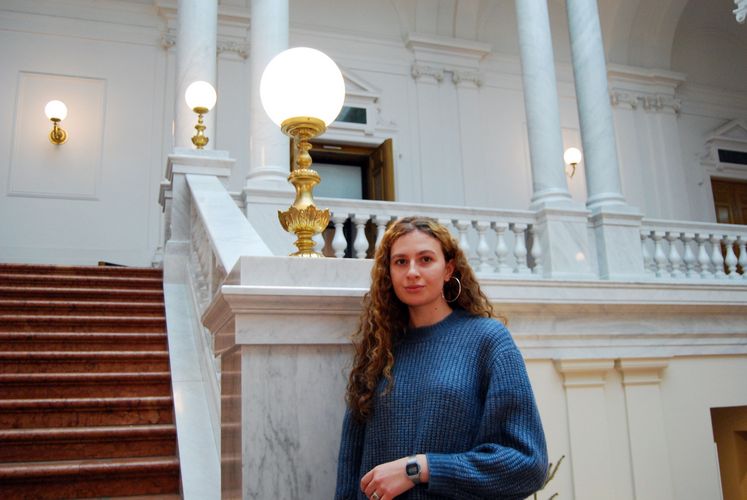Dr Daria Kasianenko, lecturer for German language and literature and an interpreter, waited it out with her family in Kyiv for a week although the city had become a war zone overnight. She had seen her neighbours load their cars and flee the city. And to be safe she and her family left as well and went to their dacha, which is located 50 kilometres outside of Kyiv on a hill overlooking Butscha – a place the world has come to associate with horrific war crimes. “We hoped it would be quieter there.” But it quickly became clear that this was not the case. “We saw it with our own eyes,” Kasianenko said via Zoom from Berlin, where she now lives with her two children, in a house owned by a Lufthansa pilot. The contact was arranged by a friend of hers who works as a flight attendant. “Thank God we managed to get out of Kyiv and Ukraine – at night on a crowded train running with no lights because of the missile attacks,” she said. “The support and friendliness we have experienced in Germany seem incredible, and we can’t believe that everything worked out so quickly. I would particularly like to thank Leipzig University.” From Berlin, where her son goes to school and her daughter to nursery, she works on a project basis – organised through the Herder Institute – with the Institute of Applied Linguistics and Translatology (IALT) at Leipzig University. At the end of the summer semester, she was already serving as an examiner for professional interpreting in the module exams for Fachdolmetschen III.
After just a few weeks, Dr Daria Kasianenko, who did her doctoral dissertation on the translation of EU legislative acts, received an Erasmus grant. Along with three other colleagues, she then obtained support from the dean’s office through a visiting scholar agreement between the Faculty of Philology in Leipzig and Kyiv University. Dr Kasianenko also teaches courses online for Kyiv University, and has even taken over classes from colleagues who have left the University altogether.



Comments
No comments found!